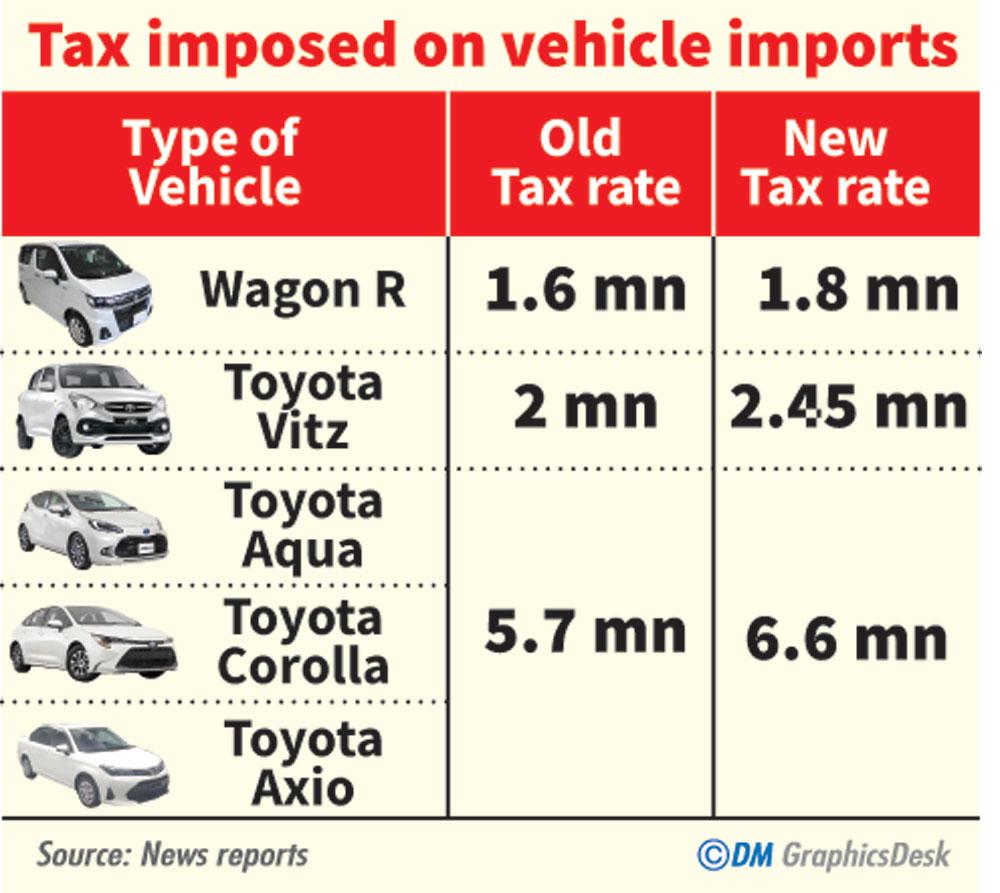The Vehicle Importers Association of Sri Lanka (VIASL) has raised concerns over a potential tax increase of up to 600% on vehicles, with some categories facing excise duties as high as 400% to 500%.
Layers of Taxation
Addressing the media, the VIASL President clarified that the recent government-issued gazette notification specifies only the excise duty percentages for vehicle imports. However, the final cost of a vehicle involves multiple layers of taxation, including:
- Special import tax (based on the vehicle’s value)
- Luxury tax
- Customs tax
- Cost, Insurance, and Freight (CIF)
- 18% VAT
The VIASL urged the public not to panic or make advance payments for vehicles, emphasizing that the gazette figures do not represent the total taxes imposed.
Vehicle Pricing Breakdown
The VIASL also provided a breakdown of vehicle prices based on recent estimates:
Petrol Non-Hybrid Vehicles
- Suzuki: Every (Rs. 1.3M), Spacia (Rs. 1.9M), Alto (Rs. 1.9M)
- Toyota: Taize/Yaris (Rs. 2.4M), Corolla (Rs. 6.6M), CHR (Rs. 4.6M)
- Honda: N-BOX, N-ONE, N-WGN (Rs. 1.9M each)
- Nissan: Dayz (Rs. 1.9M), Clipper NV100 (Rs. 1.3M)
- Mitsubishi: Minicab (Rs. 1.3M)
- Mazda: Scrum (Rs. 1.3M)
Petrol Hybrid Vehicles
- Suzuki: Wagon R, Spacia, Hustler (Rs. 1.8M each), Swift (Rs. 3.2M)
- Toyota: Raize (Rs. 3.2M), Axio/Aqua (Rs. 5.1M each), Corolla/Prius (Rs. 11.3M each)
- Honda: Fit (Rs. 3.5M), Vezel (Rs. 5.1M), N-BOX/N-WGN/N-ONE/Shuttle (Rs. 1.8M each)
- Mazda: Carol/Flair (Rs. 1.8M each)
Excise Duty Regulations
Following the five-year suspension of vehicle imports, the government imposed excise duties through a gazette notification effective January 11. These include:
- 200% to 300% excise duties on vehicles less than 10 years old.
- Taxes calculated based on engine cylinder capacities, motor power (kilowatts), and year of manufacture.
Calls for Transparency
The VIASL President has highlighted the need for clearer communication about the total tax burden to prevent confusion and financial missteps among prospective buyers. Public concerns have also prompted discussions about the accuracy and fairness of the taxation framework.
As the government moves forward with new import policies, stakeholders urge comprehensive reviews to ensure affordability and transparency in the vehicle market.












